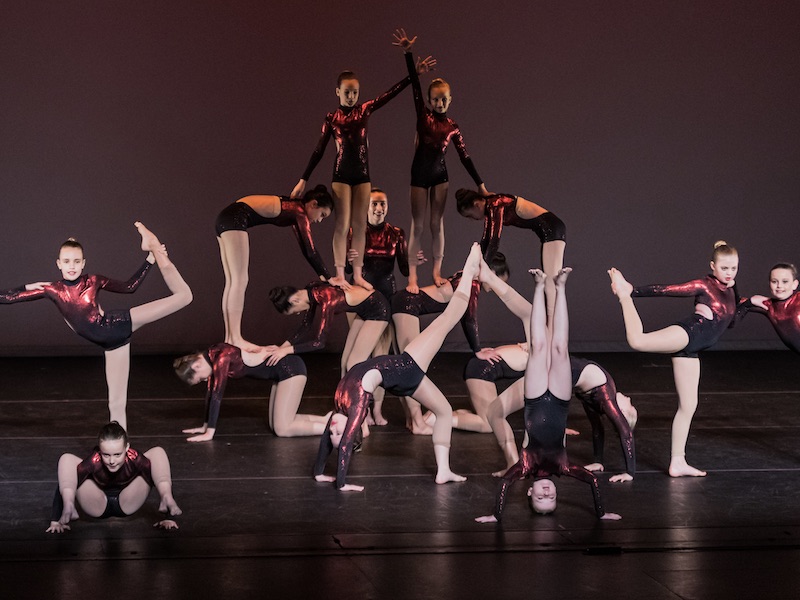In the vibrant arts scene of Singapore, theatre dance is making waves as a dynamic and enriching activity for children and adults alike. This form of dance, which combines elements of drama, music, and movement, is a powerful medium of expression and storytelling. At the heart of this movement is Elevate Dance, a leading institution that nurtures talent and fosters a deep appreciation for the performing arts. In this post, we delve into the enchanting world of theatre dance, its benefits, and what makes it a compelling choice for aspiring performers.
What is Theatre Dance?
Theatre dance, also known as musical theatre dance, is a fusion of dance styles designed to support storytelling in musical theatre productions. It encompasses various genres such as jazz, ballet, tap, and contemporary dance, all integrated with dramatic expression and characterization.
– Versatility:
Theatre dance requires dancers to be versatile, adapting to different styles and moods.
– Storytelling:
Unlike traditional dance forms, theatre dance focuses heavily on narrative and emotional expression.
– Musicality:
Dancers must be attuned to the music, as it guides their movements and expressions.
Benefits of Theatre Dance
Engaging in theatre dance offers a multitude of benefits that go beyond physical fitness.
– Enhanced Creativity:
Theatre dance encourages creativity as dancers interpret and express different characters and stories.
– Improved Confidence:
Performing in front of an audience helps dancers build self-assurance and public speaking skills.
– Physical Fitness:
The rigorous training improves flexibility, strength, and cardiovascular health.
– Cognitive Skills:
Memorising routines and understanding musical cues enhance memory and cognitive function.
– Emotional Expression:
Dancers learn to convey emotions through their movements, which can be therapeutic and empowering.
A Day in the Life of a Theatre Dance Student at Elevate Dance
Imagine a typical day at Elevate Dance, where students immerse themselves in the world of theatre dance.
– Warm-Up:
The day begins with a thorough warm-up to prepare the body for intense physical activity. Students perform a series of stretches and strength-building exercises.
– Technique Class:
Students then move on to a technique class where they learn and refine their skills in various dance styles, from jazz to contemporary.
– Choreography Session:
In the choreography session, students learn routines set to popular musical theatre numbers. The emphasis is on storytelling through movement.
– Acting Workshop:
Theatre dance isn’t just about dance; it’s also about acting. Students participate in acting workshops to hone their dramatic skills.
– Performance Practice:
The day concludes with a performance practice where students rehearse for upcoming shows, integrating all aspects of theatre dance—movement, expression, and musicality.
Key Statistics on Theatre Dance
– Popularity Growth:
Theatre dance classes in Singapore have seen a 25% increase in enrolment over the past five years, reflecting its growing popularity.
– Academic Benefits:
Studies have shown that students involved in the arts, including theatre dance, tend to perform better academically, with a 15% higher average GPA.
– Mental Health: Participation in performing arts is linked to improved mental health, with 70% of dancers reporting reduced stress and increased emotional well-being.
Anecdote: Sarah’s Transformation Through Theatre Dance
Consider the story of Sarah, a shy 12-year-old who joined Elevate Dance. Initially reserved and hesitant to perform, Sarah found her voice through theatre dance. The supportive environment and comprehensive training helped her come out of her shell. Today, Sarah is not only a confident performer but also excels academically, attributing her improved focus and self-discipline to her dance training.
Choosing the Right Theatre Dance School
Selecting the right school for theatre dance is crucial for a positive and enriching experience.
– Qualified Instructors:
Ensure the school has experienced instructors who are skilled in both dance and drama.
– Comprehensive Curriculum:
Look for a curriculum that covers a wide range of dance styles and includes acting workshops.
– Performance Opportunities:
A good school should provide ample opportunities for students to perform, helping them gain stage experience.
– Supportive Environment:
The school should foster a nurturing and encouraging atmosphere where students feel safe to express themselves.
Common Misconceptions about Theatre Dance
There are several misconceptions about theatre dance that deserve to be addressed:
– It’s Only for the Talented:
While natural talent is beneficial, theatre dance is about passion and practice. Anyone can improve and enjoy the benefits with dedication.
– It’s Just for Girls:
Theatre dance is for everyone. Boys can benefit just as much from the physical, cognitive, and emotional growth it offers.
– It’s Not a Serious Activity:
Theatre dance is a rigorous discipline that requires hard work and commitment, contributing significantly to personal development.
Conclusion
Theatre dance in Singapore offers a rich and multifaceted experience, blending the best of dance, drama, and music. It provides a creative outlet, builds confidence, and enhances physical fitness, making it a valuable pursuit for children and adults alike. At Elevate Dance, students are immersed in this magical world, gaining skills and experiences that will benefit them for a lifetime. Whether you’re looking for a way to boost your child’s confidence or seeking a new creative challenge, theatre dance at Elevate Dance is a wonderful opportunity to explore the performing arts.

